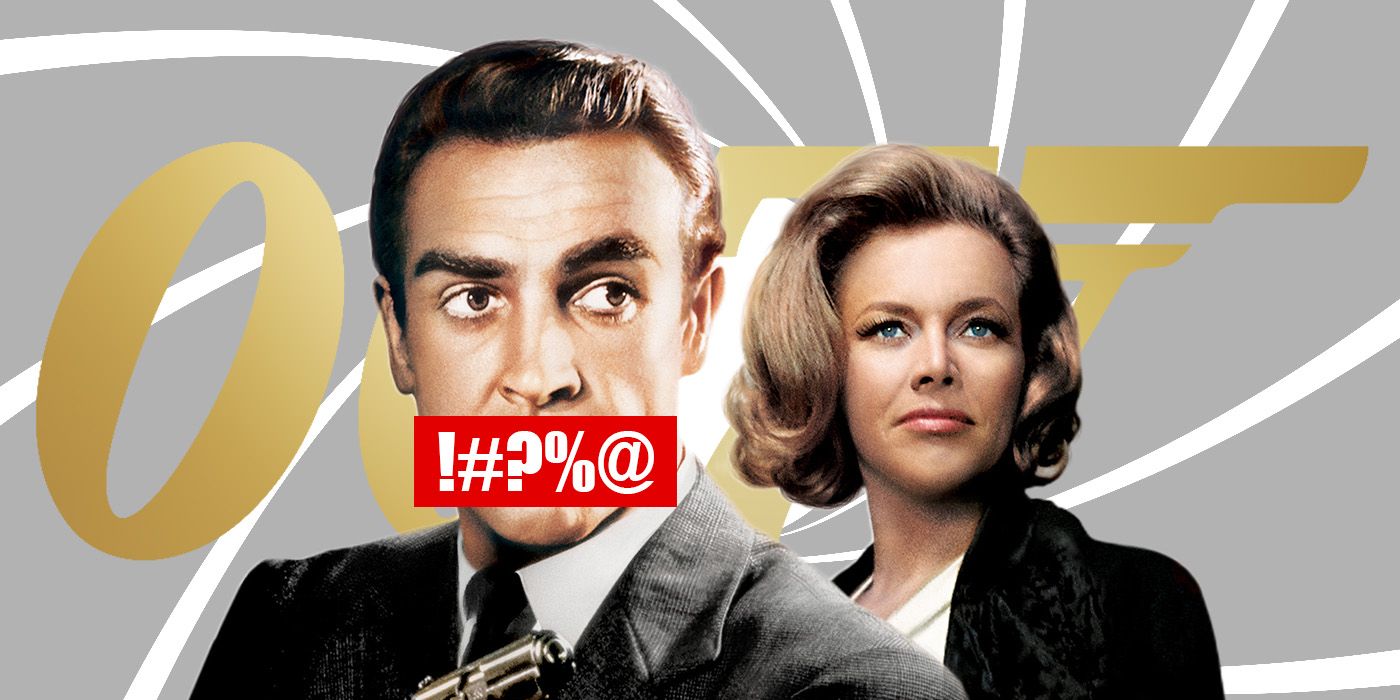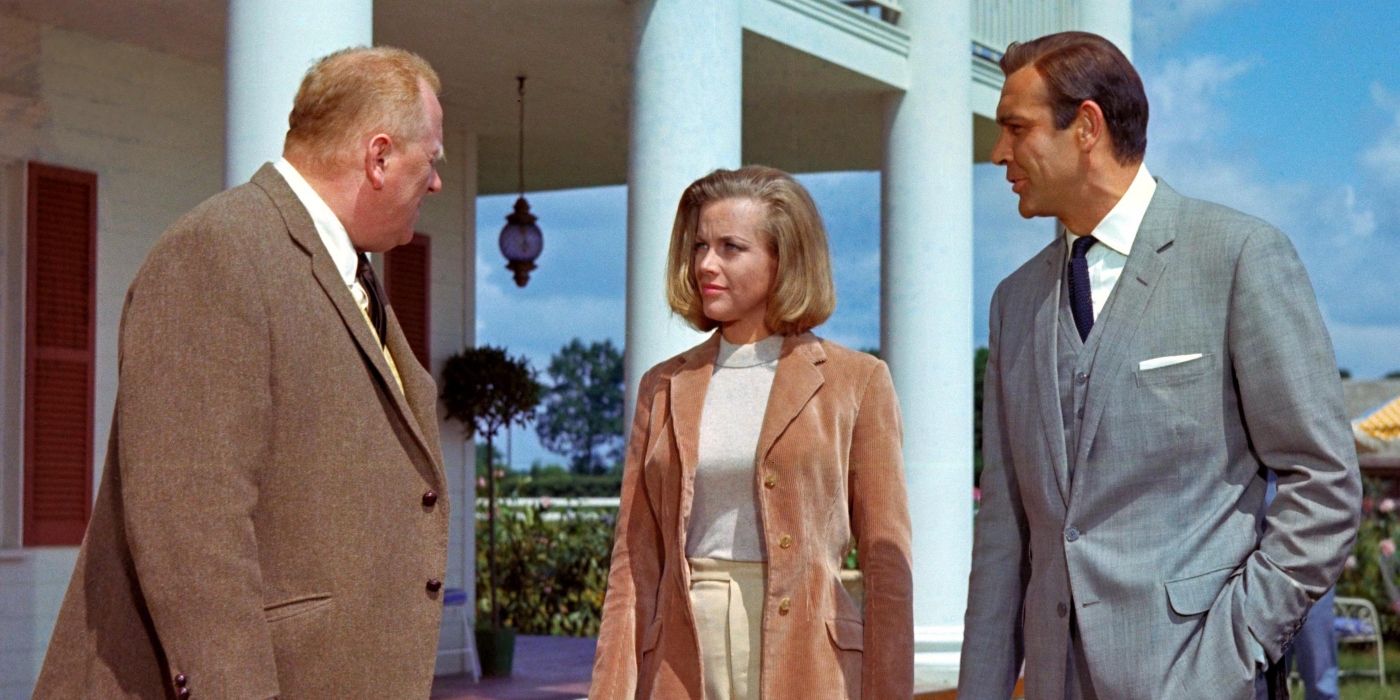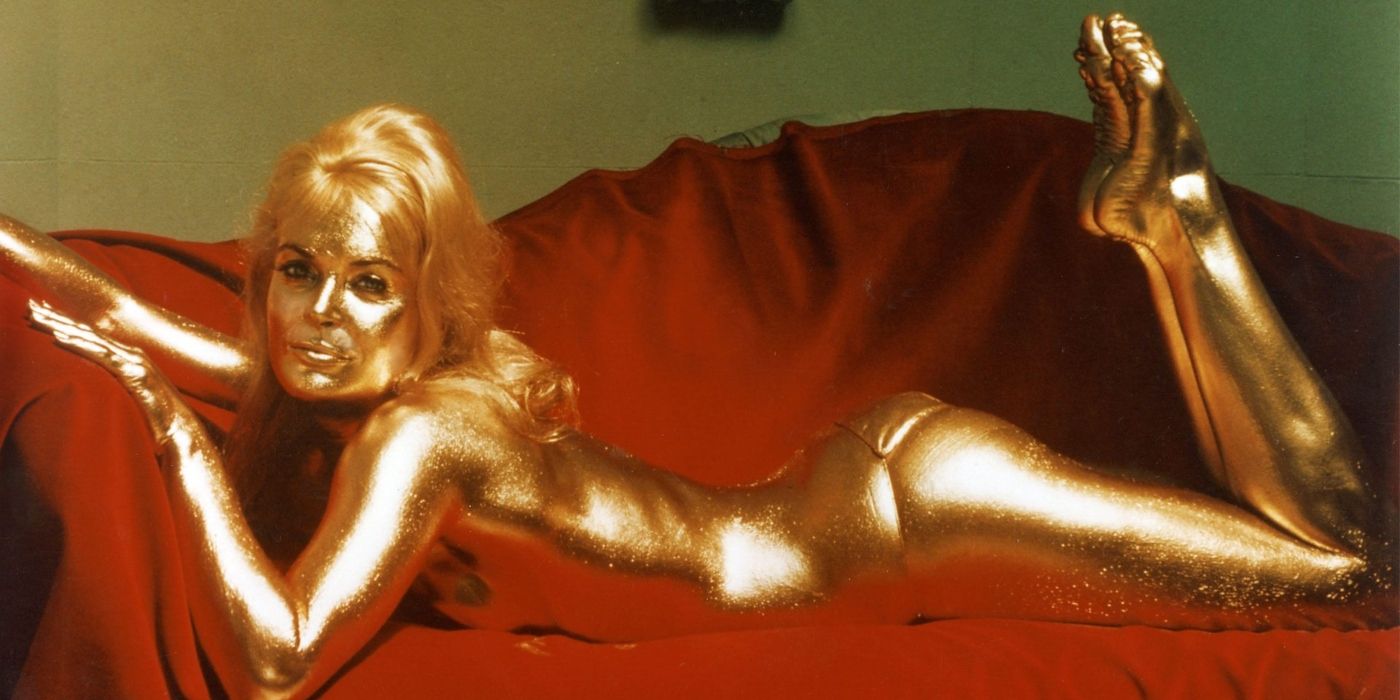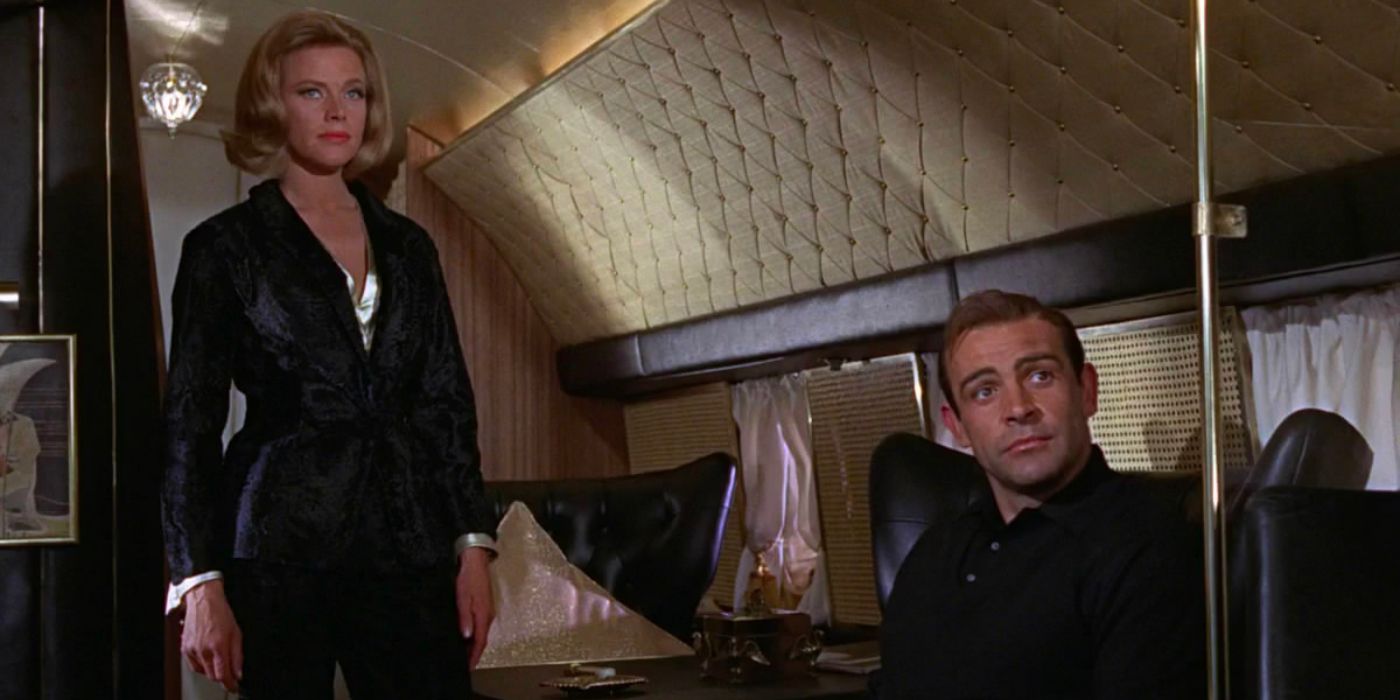Believe it or not, we sort of have the Royal Family to thank.

THE BIG PICTURE
Goldfinger established the cheeky tone essential to the Bond franchise, making it a true blockbuster series.
The controversial character name “Pussy Galore” in Goldfinger sparked a censorship stir.
The Bond franchise’s inclusion of objectionable content began with Goldfinger , paving the way for more explicit themes.
There aren’t many film franchises that have endured quite as long as the James Bond series.
Ian Fleming’s popular series of Cold War-era espionage thrillers were transformed into exciting, sexy action films that subsequently changed the genre of “spy movies” forever.
Although the character was first brought to life in an episode of the anthology television show Climax!, Bond made his cinematic debut in 1962 with Dr. No, starring Sean Connery.
Both Dr. No and its sequel From Russia With Love were hailed as successes, but the archetypes of the 007 series as they’re known today began in earnest with the 1964 classic Goldfinger.
In addition to incorporating more gadgets, action, and stylized filmmaking devices, Goldfinger established the cheeky tone that would become essential to the Bond franchise.
While both Dr. No and From Russia With Love attempted to remain closer to the grittier tone of Fleming’s original novels, Goldfinger was gleefully over-the-top and self-aware of its own campiness.
This succeeded in turning the Bond series into a true blockbuster franchise, and paved the way for the series to get bigger and bolder with each subsequent installment.
However, the name of Bond’s love interest in Goldfinger faced a serious censorship controversy.
‘Goldfinger’s Pussy Galore Caused a Censorship Stir
Goldfinger is based on Fleming’s 1959 novel of the same name, which details Bond’s attempts to take down the ruthless billionaire Auric Goldfinger (Gert Fröbe).
Obsessed with gold and determined to cripple the American economic infrastructure, Goldfinger concocts an evil plan to attack the United States Bullion Depository at Fort Knox.
Early on in his mission, Bond teams up with a pilot known as “Pussy Galore,” played by Honor Blackman.
The obvious double entendre was included within Fleming’s original novel for comedic effect, but having a potentially lewd reference within a major blockbuster film created potential headaches for EON and producers Harry Saltzman and Albert R. Broccoli.
The strict code regarding content developed by the Motion Pictures Association of America forced many films to make serious edits in order to screen widely in the United States.
Director Guy Hamilton made a genuine effort to tone down the overt sexuality of the character from the novel, removing any graphic content that censors could object to. However, the character’s name still provoked a challenge.
While EON first considered changing the name to “Kitty Galore” in order to tone down the double entendre, Hamilton decided to remain true to the original novel — and made it happen in an unorthodox fashion.
According to Esquire, EON arranged for Blackman to be present at the film’s premiere alongside the Royal Family, leading to many humorous headlines about a photo of her with Prince Philip.
By the time that newspaper headlines titled “The Prince and the Pussy” were widely circulated, there was no use in trying to censor the character’s name for an American release.
The censorship board determined the name couldn’t be that indecent if the future King himself was willing to take a photograph with the actress bringing Pussy Galore to life.
‘Goldfinger’ Subverted the MPAA’s Policies
Although Goldfinger managed to slip past the MPAA without having to make any edits, EON was forbidden from referencing the name “Pussy Galore” in any trailers or promotional materials.
Thankfully, the studio had an ally in Blackman, who would routinely reference her character’s name when giving interviews, and took pride in her role in the film.
In addition to raising awareness of the film’s profile, Blackman’s enthusiasm for the character ended up solidifying her place in the Bond franchise’s history.
She became one of the few female characters in the series who manages to hold her own against Connery’s magnetic charisma.
Although it’s rather tame when compared to later films within the series, Goldfinger set a precedent for the Bond franchise’s ability to include objectionable content.
While sexuality was always a core aspect of the franchise, subsequent Bond films were able to include more explicit romantic interactions between 007 and his love interests as a result of the precedent set by Goldfinger.
The series also began to push the line in terms of graphic violence; while Goldfinger plays most of its action sequences for laughs, the Bond films starring Timothy Dalton and Daniel Craig took a darker approach that was reflective of the more serious tone of Fleming’s original novels.
‘Goldfinger’ Changed the James Bond Franchise Forever





Bond’s relationship with women has been a controversial aspect of the franchise since its inception, as many modern pundits have accused the films of perpetrating sexist clichés.
Ironically, the naming of “Pussy Galore” signified the Bond franchise was aware of its problematic elements.
Including a character name that was so obviously suggestive showed that the series wasn’t trying to mask the aspects of male fantasy it was incorporating.
In fact, Connery’s delivery of the line “I must be dreaming” upon first hearing the name serves as one of the funniest moments within his entire run as the character.
Although it’s unlikely the name “Pussy Galore” would make it in a modern 007 film, the Bond franchise has featured better female characters in recent years.
Michelle Yeoh’s performance in Tomorrow Never Dies superseded the role of a typical “Bond girl,” and GoldenEye broke new ground for the series by giving Bond a female boss with Judi Dench’s M.